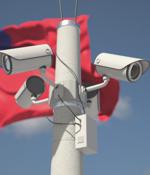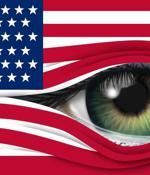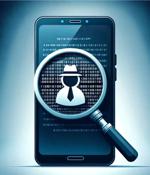Security News

Your profile can be used to present content that appears more relevant based on your possible interests, such as by adapting the order in which content is shown to you, so that it is even easier for you to find content that matches your interests. Content presented to you on this service can be based on your content personalisation profiles, which can reflect your activity on this or other services, possible interests and personal aspects.

Your profile can be used to present content that appears more relevant based on your possible interests, such as by adapting the order in which content is shown to you, so that it is even easier for you to find content that matches your interests. Content presented to you on this service can be based on your content personalisation profiles, which can reflect your activity on this or other services, possible interests and personal aspects.

Blocking the signal blinds the device and stalls home and business surveillance systems, which is concerning considering internet protocol cameras account for up to 40% of the surveillance market. Let's examine what's happening and consider how users can ensure their cameras stay online in the face of tech-savvy burglars.

Infosec in brief US Congress nearly killed a reauthorization of FISA Section 702 last week over concerns that it would continue to allow warrantless surveillance of Americans, but an amendment to require a warrant failed to pass. Section 702 of the Foreign Intelligence Surveillance Act has long been contentious for its provisions which indirectly allow surveillance of US citizens without a warrant.

On March 27 the commission asked telecommunications providers to weigh in and detail what they are doing to prevent SS7 and Diameter vulnerabilities from being misused to track consumers' locations. The FCC has also asked carriers to detail any exploits of the protocols since 2018.

This is applications, so it is not because I've nuked state in a browser. It is applications for services for which I am paying money.

The Iran-affiliated threat actor tracked as MuddyWater (aka Mango Sandstorm or TA450) has been linked to a new phishing campaign in March 2024 that aims to deliver a legitimate Remote Monitoring...

The Washington Post is reporting on the FBI's increasing use of push notification data-"Push tokens"-to identify people. The police can request this data from companies like Apple and Google without a warrant.

Last week, someone posted something like 570 files, images and chat logs from a Chinese company called I-Soon. I-Soon sells hacking and espionage services to Chinese national and local government.

The U.S. State Department said it's implementing a new policy that imposes visa restrictions on individuals who are linked to the illegal use of commercial spyware to surveil civil society...